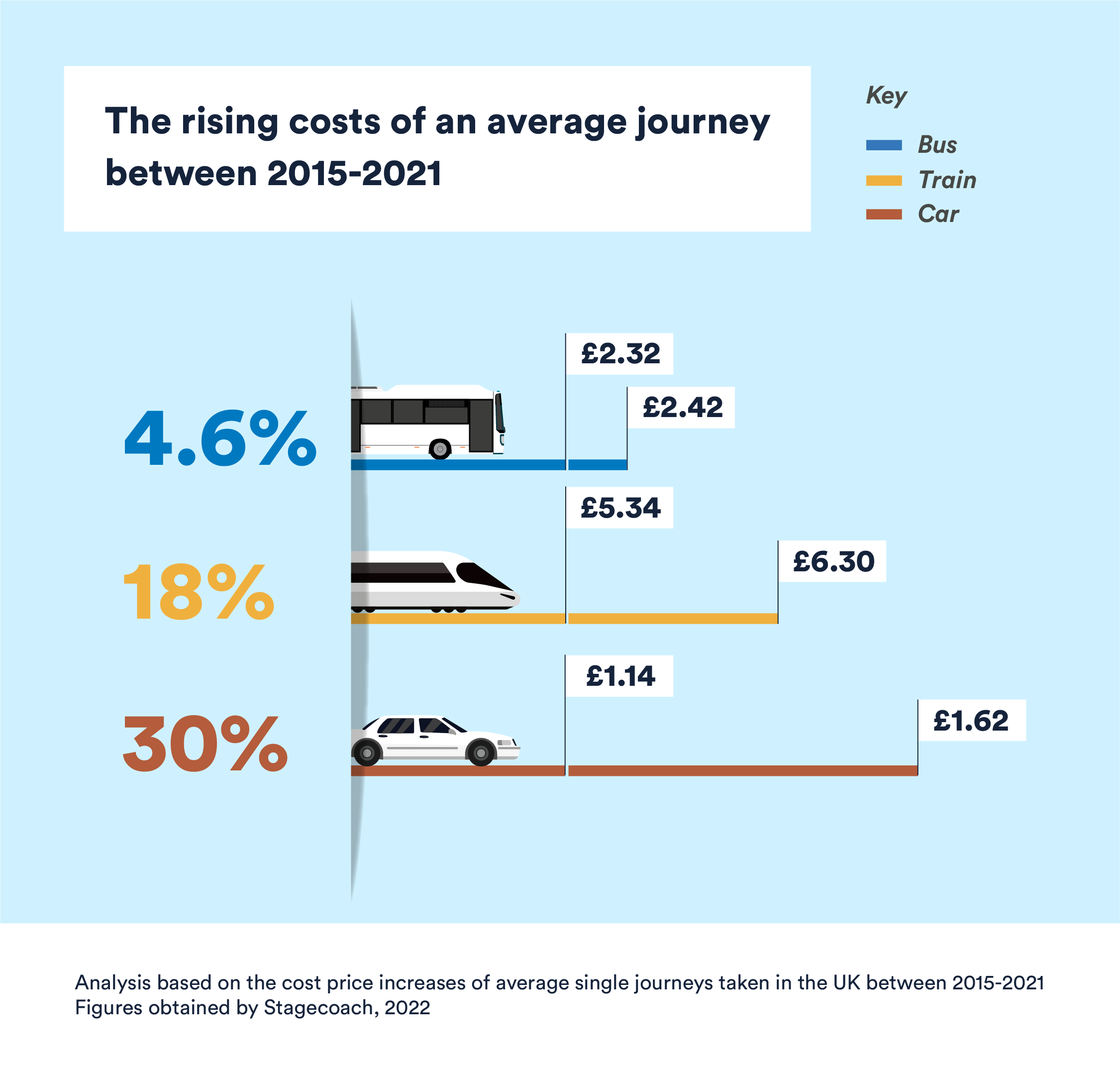Arts & Culture
Arts and Culture
Awards
Beauty
Buisiness
busi
Business
Business Directory
Caharity
Charity
Climate
Competitions & Surveys
Construction
CoronaVirus
Cycling
Digital
DISENCHANTMENT
e
ed
Education
Eduction
Emergency
Employment
ener
Energy
Entertainment
Entertianment
Enviroment
Enviromental
Environment
Events
Experts
Fashion
Fashion & Beauty
food
Food & Drink
Football
Funny
Games
Gaming
Government
Health
Heath
Hospitality
Jobs
Kids
Law & Finance
Life
Link Building
LIVE
Members Area
Motoring
Motoring Technology
Music
North East News
Oets
Pets
Politics
Property
Recruitment
Retail
s
Social
Space
Sport
Sports
Techno
Technology
Tecnology
Tennis
Travel & Tourism
Uncategorised
Weather
Switching from train to bus for just two days a week could save commuters in London £715 a year, which is the third highest saving across the UK.
Research from Stagecoach revealed that bus travel saw the lowest national increase in fares since 2015, compared to other public transport, with London seeing a below-average 2.25% rise. The national average costs are shown in the graphic below:
The top areas to make a saving by mixing up your commute and taking the bus over the train two days a week were:
- Midlands – £813
- West Country (inc. Cornwall, Bristol) – £740
- London – £715
- Wessex – £296
- Kent – £169
It’s not just switching train for the bus where savings can be made. Travellers could save an average of £505.72 a year if they were to mix up their commute and switch their diesel car for the bus just two days a week, with petrol car owners potentially saving £350.20 annually.
Statistics show fuel prices at an all-time high, with petrol prices increasing by 48p/litre, equating to a 42% rise, and diesel up by 57p/litre, a 48% increase, since 2015.
The financial savings aren’t the only positive of switching to bus, the research also found mixing up your commute two days a week could have a substantial positive impact on the environment. Swapping your car for the bus for two journeys a week can save more than 900kg of CO2 emissions in a year, with train users saving over 1,500kg of CO2.Data source
Carla Stockton-Jones, UK Managing Director of Stagecoach, commented:
“The cost-of-living crisis is taking its toll on everyone, and we want to play our part in helping. We’ve experienced a rise in fuel, energy, labour and supply chain costs, which all have a knock-on effect on fares. This research helps to identify exactly where the public can make a saving on their transport by mixing up their commute.
“As Britain’s biggest bus provider, we’re proud to see that bus services are still the cheapest travel option. Increases have fallen below the national inflation average, proving that buses are an affordable and reliable way to travel. Fares are used to pay for the rising costs of running services, including pay for bus workers who have worked hard to keep communities connected and services running during the pandemic, as well as investing in improvements for customers and new greener vehicles.
“We also want to highlight how bus travel is much more environmentally friendly than driving and would encourage everyone to plan their journey and mix up their commute.”
